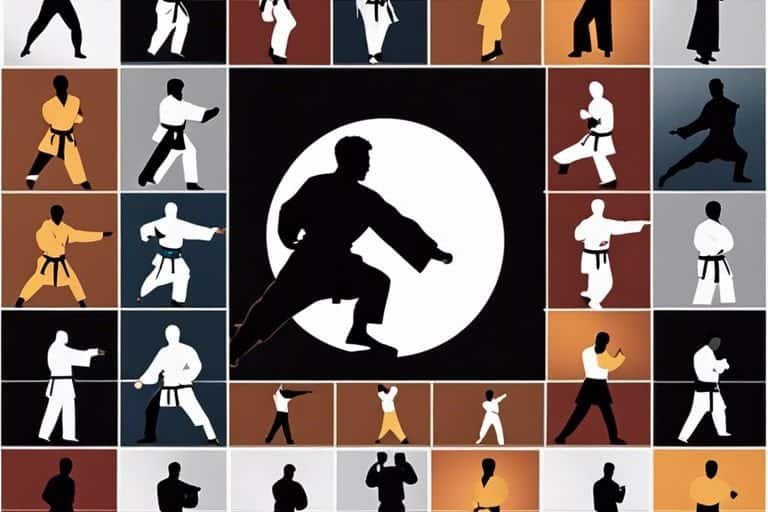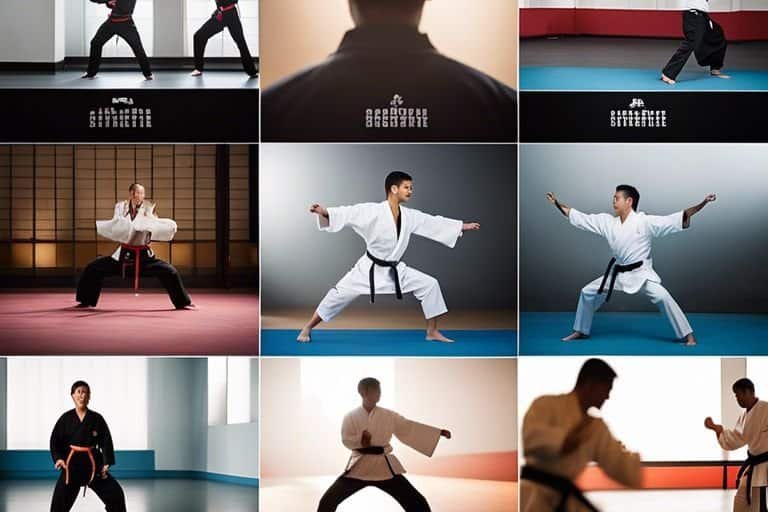Confronting the myriad of martial arts disciplines available can be overwhelming, but understanding your own personality can significantly narrow down the options. Choosing the right martial arts discipline involves more than just physical ability; it requires careful consideration of your mental and emotional traits. Each discipline has its own unique characteristics and techniques, so it’s crucial to align your personality with the right one to ensure maximum effectiveness and enjoyment. In this blog post, we will delve into the important factors to consider when selecting a martial arts discipline based on your personality, as well as the potential dangers and benefits of each choice. By the end, you’ll be equipped with the knowledge to make an informed decision that suits both your character and goals.
Key Takeaways:
- Consider your personality: When choosing a martial arts discipline, consider your personality traits. If you are patient and disciplined, you might enjoy a more traditional and structured style like karate or taekwondo. If you are energetic and enjoy dynamic movements, styles like kickboxing or capoeira might be more suitable.
- Assess your fitness goals: Different martial arts disciplines focus on different aspects of fitness, such as strength, flexibility, endurance, and agility. Consider your fitness goals and choose a discipline that aligns with them. For example, if you want to improve cardiovascular health, a high-intensity discipline like Muay Thai or boxing could be suitable.
- Try different classes: To find the right martial arts discipline for your personality, try attending different classes and experiencing the teaching styles, techniques, and atmosphere of each discipline. This will help you to determine which discipline resonates with you the most and suits your personality and fitness goals.
Assessing Your Goals and Personality
Before diving into a martial arts discipline, it’s crucial to assess your goals and personality to find the right fit for you. Understanding what you aim to achieve and who you are as an individual will guide you in selecting the most suitable martial arts practice.
Identifying Your Objectives
Begin by identifying why you want to pursue martial arts. Is it for self-defence, physical fitness, competitive sport, or personal development? Your objectives will significantly influence the discipline that aligns with your goals. If you seek self-defence, disciplines like Krav Maga or Brazilian Jiu-Jitsu might be suitable. For physical fitness, disciplines such as Muay Thai or Taekwondo may be more appropriate. Consider your ambitions and be clear about what you want to accomplish through martial arts.
Understanding Your Personality Traits and Preferences
Take a closer look at your personality traits and preferences. Are you more inclined towards discipline and structure, or do you thrive in a creative and expressive environment? If you value tradition and respect for hierarchy, disciplines like Karate or Kendo may resonate with you. For those who enjoy a more dynamic and diverse practice, disciplines such as Capoeira or Kickboxing may be more appealing. Understanding your personality will help you find a martial arts discipline that not only aligns with your goals but also complements your individuality.
It’s important to note that there is no one-size-fits-all approach, and personal preferences play a significant role in choosing the right martial arts discipline. Embracing your uniqueness and being self-aware will ultimately lead you to the discipline that best suits your goals and personality.
Key Factors to Consider When Choosing a Martial Art
Before delving into the world of martial arts, it is crucial to consider several key factors that will influence your decision. Each martial art has its own unique characteristics and benefits, so it is essential to assess these factors to ensure that you choose the right discipline for your personality, goals, and physical abilities.
- Physical Fitness and Flexibility Requirements
- The Role of Philosophy and Mental Discipline
- Practicality and Real-World Application
- Community and Cultural Aspects
Physical Fitness and Flexibility Requirements
When selecting a martial art, it is important to consider the physical fitness and flexibility level required for each discipline. Some martial arts, such as kickboxing and Brazilian Jiu-Jitsu, demand a high level of physical fitness and flexibility, making them suitable for individuals who are already in good shape. On the other hand, arts like Tai Chi or Aikido focus more on gentle, flowing movements, making them suitable for individuals with lower fitness levels or those seeking low-impact workouts.
Moreover, certain martial arts emphasise explosive power and agility, while others concentrate on endurance and steady movements. Consider your physical attributes and capabilities before committing to a particular martial art to ensure that it aligns with your current fitness level and long-term fitness goals.
The Role of Philosophy and Mental Discipline
Aside from the physical aspects, the philosophical and mental discipline embedded in each martial art is a crucial factor to consider. Some disciplines, such as Krav Maga and Muay Thai, have a strong emphasis on aggressive techniques and combat effectiveness, suitable for individuals interested in seIf-defence and real-life combat situations.
On the other hand, arts like Judo and Taekwondo place significant emphasis on mental discipline, respect, and self-control, making them suitable for individuals seeking personal development and character improvement. It is important to align the philosophical and mental aspects of a martial art with your own values and goals to ensure a fulfilling and harmonious experience.
Perceiving the philosophical principles and mental qualities associated with each martial art is essential to make an informed decision that resonates with your personal beliefs and aspirations.
Practicality and Real-World Application
Another crucial factor to consider when choosing a martial art is its practicality and real-world application. Some arts, such as Krav Maga and Brazilian Jiu-Jitsu, focus on self-defence and real-life combat situations, providing practical skills for handling physical altercations and dangerous scenarios.
Conversely, arts like Tai Chi and Aikido may prioritise health benefits and inner harmony over practical combat application. It is important to assess your lifestyle and practical needs when considering the real-world application of a martial art to ensure that it aligns with your personal safety and security concerns.
Perceiving the practicality and applicability of a martial art in real-life scenarios is essential for making an informed choice that addresses your needs and concerns.
Community and Cultural Aspects
Furthermore, the community and cultural aspects associated with each martial art are important factors to consider. Some disciplines, such as Brazilian Jiu-Jitsu and Muay Thai, have strong community support and a rich cultural heritage, offering a sense of belonging and tradition. On the other hand, arts like Krav Maga and Jeet Kune Do may focus more on individual skills and practical techniques without strong cultural ties.
Moreover, the availability of training facilities and qualified instructors within the local community should also be considered when choosing a martial art. Assessing the community support and cultural relevance of a discipline can significantly impact your overall experience and long-term commitment to the practice.
Perceiving the community dynamics and cultural influences of each martial art will help you make an informed decision that fosters a sense of belonging and resonates with your personal interests and values.

Practical Tips for Beginners
Starting your journey into the world of martial arts can be both exciting and overwhelming. Here are some practical tips to help beginners navigate the process of choosing the right martial arts discipline:
- Do Your Research: Before diving in, take the time to research different martial arts disciplines to find the one that resonates with your personality and goals. Consider factors such as the philosophy, techniques, and cultural background of each discipline.
- Seek Guidance: It can be beneficial to seek guidance from experienced practitioners or instructors who can provide valuable insights and recommendations based on your fitness level, temperament, and personal objectives.
- Visit Multiple Schools: Take the opportunity to visit and observe classes at different martial arts schools to get a sense of the teaching style, atmosphere, and community within each school.
- Consider Trial Classes: Many schools offer trial classes or workshops, allowing you to experience the training firsthand before making a commitment.
Any further guidance on how to choose the right martial arts discipline can be found in the comprehensive guide ” 8 Steps on How to Choose what Martial Art to Learn “.
How to Research and Select a Martial Arts School
Researching and selecting a martial arts school that aligns with your personal preferences is crucial for a fulfilling learning experience. Look for accredited instructors, clean and safe training environments, and a curriculum that matches your goals and interests. Additionally, consider the class schedule and location convenience to ensure you can commit to regular training sessions.
Trying Out Different Disciplines: Workshops and Trial Classes
Exploring different martial arts disciplines through workshops and trial classes can provide invaluable insights into the physical demands, mental focus, and cultural aspects of each discipline. This hands-on experience can help you identify your preferences and compatibility with specific martial arts disciplines before making a long-term commitment.
Trying out different disciplines through workshops and trial classes also allows you to interact with instructors and fellow practitioners, gaining a real sense of the teaching approach, learning atmosphere, and community dynamics within each martial arts school.

Conclusion: How to Choose the Right Martial Arts Discipline for Your Personality
Choosing the right martial arts discipline for your personality is crucial in finding a practice that not only suits your physical capabilities but also aligns with your mental and emotional needs. By considering your temperament, goals, and preferences, you can narrow down the options and find a martial art that resonates with you. Whether you are drawn to the dynamic movements of karate, the flowing techniques of tai chi, or the ground-based skills of Brazilian jiu-jitsu, it is important to explore different disciplines and find one that suits your personality and complements your lifestyle. By researching and trying out different martial arts, you can make an informed decision and embark on a fulfilling journey towards physical and personal growth.
FAQ
Q: What factors should I consider when choosing a martial arts discipline?
A: When choosing a martial arts discipline, consider your goals, fitness level, interests, and personality. Different disciplines focus on various aspects such as self-defence, fitness, mental discipline, or sport competition.
Q: How do I know which martial arts discipline is right for my personality?
A: Consider your personality traits and preferences. If you prefer a fast-paced, dynamic environment, disciplines such as Kickboxing or Taekwondo may suit you. If you prefer a more meditative and disciplined approach, disciplines such as Tai Chi or Aikido might be better suited to your personality.
Q: What are the key differences between popular martial arts disciplines?
A: Popular martial arts disciplines like Karate, Jiu-Jitsu, Muay Thai, and Kung Fu differ in their techniques, origins, and philosophies. For example, Karate focuses on striking, while Jiu-Jitsu emphasises grappling and ground fighting. Researching each discipline’s principles and techniques can help you make an informed decision.
Q: How can I determine if a martial arts discipline matches my fitness level?
A: Assess your current fitness level and any physical limitations you may have. Some disciplines, like Brazilian Jiu-Jitsu, require more ground-based movements and may be less demanding on cardio fitness compared to disciplines like Kickboxing or Muay Thai, which require extensive cardio conditioning.
Q: Are there specific martial arts disciplines suitable for different age groups?
A: Yes, some disciplines are more suitable for specific age groups. For example, disciplines like Judo or Jiu-Jitsu may be more suitable for children due to their focus on technique and leverage rather than brute strength, whereas disciplines like Krav Maga or Taekwondo may be more popular among young adults for their focus on self-defence and acrobatic kicks.



